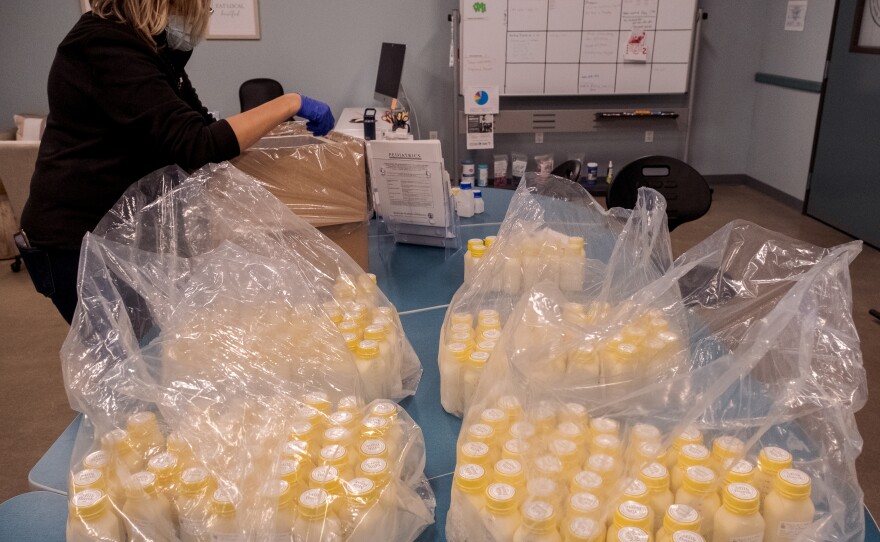As they grapple with the nationwide shortage of baby formula, some parents of infants are turning to Facebook and other online sources to purchase formula or breastmilk.
That is a bad idea, says Dr. Lisa Stellwagen, the director of the University of California Health Milk Bank.
The UC Health Milk Bank is one of just 31 milk banks in all of North America and collects breast milk from women who sign up to donate extra milk after going through a rigorous screening process. It primarily serves mothers who couldn’t carry their babies to full term.
“Our main goal is to provide pasteurized donor milk for premature babies in the NICU." Stellwagen said. “(They) do best in the hospital if they receive their mother's own milk … but many of them are born early because the mom is ill and she may not be able to make milk on a normal timetable.”
These preterm babies shouldn’t get formula because they need human breast milk to avoid potential bowel complications, Stellwagen said. But many hospitals still give premature babies formula if they don’t have donor milk.
The current formula shortage isn’t significantly impacting hospitals because they have their own supply, Stellwagen said. But she’s worried about infants who are at home and might not be getting the special formula they need.
“The main concern right now is children at home who have a need for specialized medical formula that they may not be able to get because it was part of the recall,” she said. "The donor milk banks are happy to step up and provide milk if they have the capabilities to do so.”

However, while UC Health’s milk bank does provide milk to some babies at home, the cost is prohibitive — as much as $4 to $5 an ounce. This adds up to about $6,000 a month. Insurance typically doesn’t cover the cost, but Stellwagen said some families do buy directly from UC Health.
Given this high cost and the formula shortage, parents might be tempted to buy breast milk through social media, but that’s not safe, Stellwagen said.
“The safety comparison is like blood donation, there are risks in using raw milk from somebody that you don't know that hasn't been vetted,” she said. “The milk donor hasn't been tested, the milk hasn't been checked for bacteria, and milk obtained on the Internet might be shipped or handled improperly and could put a baby's health at risk.”
If families are looking for formula for their child, they can first try smaller stores or pharmacies or order from legitimate online retail sites, Stellwagen said. They can also call their child's clinic or doctor's office for assistance.
“Switching to other brands of similar formula is fine for a healthy baby with no dietary restrictions,” she said. “Older babies over 6 months can be given toddler formula or whole cow's milk for a short period of time.”
But, she stressed, parents should never give toddler milk, whole cow's milk or plant based milk to a baby under 6 months. They should also never make their own formula or add extra water to formula to make it last longer.
“Babies can get very sick if they get too much or too little water or important nutrients,” she said.
The UC Health Milk Bank is looking for more volunteers to donate milk and Stellwagen said the formula shortage is a good reminder how great the need is.








